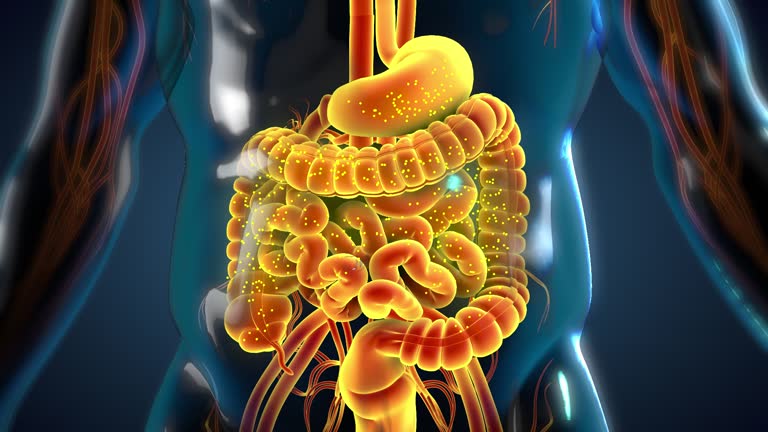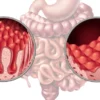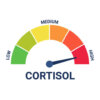
Irritable Bowel Syndrome (IBS) affects many people across the UK, causing symptoms such as bloating, abdominal pain, gas, diarrhoea, or constipation. Managing IBS can feel challenging, and many of our patients explore various strategies, from dietary changes to stress management, in search of relief.
One area that has gained attention in recent years is the use of digestive enzymes. But how exactly can they help, and are they suitable for everyone with IBS? In this article, we explain what digestive enzymes are, how they function in the gut, their potential benefits for IBS, and how we incorporate them into a personalised care plan at IBS Gut Health Clinic.
What Are Digestive Enzymes?
Digestive enzymes are proteins produced naturally by the body that help break down food into nutrients your body can absorb. These enzymes act on carbohydrates, proteins, and fats, ensuring that your digestive system can efficiently process the foods you eat. In a healthy gut, the production of digestive enzymes is usually sufficient. However, some people experience reduced enzyme activity due to conditions like pancreatic insufficiency, surgery, or other digestive disorders. In these cases, supplementing with digestive enzymes can help support digestion.
Types of Digestive Enzymes
There are several types of digestive enzymes, each with a specific role:
· Amylase – breaks down starches into sugars.
· Lipase – helps digest fats into fatty acids and glycerol.
· Proteases / Peptidases – break down proteins into amino acids.
· Lactase – aids in digesting lactose found in dairy.
· Alpha-galactosidase – helps digest complex carbohydrates in beans and legumes, reducing gas.
· Specialised carbohydrate enzymes – target FODMAP carbohydrates such as fructans or inulin, which can trigger IBS symptoms.
Because each enzyme is specific to a nutrient type, many supplements contain a blend of enzymes to support digestion more broadly.
How Digestive Enzymes Work in the Gut
Digestive enzymes work throughout the digestive system:
· Mouth – Salivary amylase begins starch digestion while chewing.
· Stomach – Pepsin and stomach acids start breaking down proteins.
· Small intestine – The pancreas releases a cocktail of enzymes (amylase, lipase, proteases) to digest starches, fats, and proteins.
· Brush-border enzymes – Located in the small intestine lining, these complete sugar digestion for absorption.
· Absorption – Nutrients are absorbed into the bloodstream, while undigested food moves to the colon.
By ensuring food is properly broken down, digestive enzymes can reduce the amount of undigested material reaching the colon, which may help decrease fermentation, gas, and bloating.
How Digestive Enzymes Can Benefit IBS
Digestive enzymes are not a cure for IBS, but they can be a useful tool when incorporated into a personalised care plan.
Improving Digestion and Reducing IBS Symptoms
Some ways digestive enzymes may help include:
· Reducing bloating and gas – Enzymes like alpha-galactosidase can break down certain carbohydrates before they reach the colon, decreasing fermentation by gut bacteria.
· Managing lactose intolerance – Lactase supplements can relieve dairy-related IBS symptoms.
· Supporting dietary flexibility – Enzyme blends may allow for more varied meals, especially after following a low-FODMAP elimination diet.
· Easing post-meal discomfort – Multi-enzyme supplements have been shown in small studies to reduce symptoms like abdominal cramping, fullness, and gas.
While research is promising, the evidence is still limited, and results can vary between individuals.
Enzyme Supplements for IBS: Do They Help?
Clinical trials and studies suggest that targeted enzyme supplementation can benefit certain people with IBS:
· Pancreatic enzyme therapy – Some patients experience modest improvements in cramping, bloating, and stool frequency.
· Targeted enzymes – Alpha-galactosidase and lactase have been shown to reduce symptoms in people sensitive to GOS (found in beans) or lactose.
· Emerging products – Supplements combining lactase, alpha-galactosidase, and fructan hydrolase are available for FODMAP-sensitive individuals.
At IBS Gut Health Clinic, we work with patients to determine whether digestive enzymes may be appropriate, considering individual symptom patterns and dietary triggers.
Potential Side Effects of Digestive Enzymes for IBS
While many people tolerate digestive enzymes well, side effects can occur:
· Gastrointestinal discomfort – nausea, abdominal cramping, diarrhoea, or bloating, especially if the dose is too high.
· Constipation – occasionally, enzyme use can contribute to constipation.
· Allergic reactions – rare, but possible with fungal, bacterial, or animal-derived enzymes.
· Fat malabsorption – excessive lipase supplementation may lead to oily stools in some individuals.
· Quality concerns – over-the-counter supplements may vary in potency or contain allergens and fillers.
We always recommend a cautious trial and careful monitoring when introducing enzyme supplements.
Choosing the Right Digestive Enzyme Supplement
Selecting the right supplement is key to effectiveness and safety.
Factors to Consider When Selecting an Enzyme Supplement
· Specificity – Choose enzymes targeting your known triggers, such as lactase for lactose intolerance or alpha-galactosidase for beans.
· Potency – Look at the enzyme units (GALU, USP, or similar) to ensure a sufficient dose for meals.
· Timing – Enzymes are most effective when taken with or immediately before meals.
· Quality – Reputable brands with third-party testing reduce the risk of contamination and variable potency.
· Allergens and excipients – Avoid unnecessary fillers or allergens that may exacerbate IBS symptoms.
· Clinical support – Products used in research studies or recommended by dietitian’s are preferred.
We guide our patients through selecting supplements that are both safe and effective, tailoring choices to individual needs.
Lifestyle Changes Along with Digestive Enzymes for IBS Relief
Digestive enzymes work best alongside other strategies:
· Personalised diet – Structured elimination and reintroduction of trigger foods can identify what affects your symptoms.
· Mindful eating – Chewing thoroughly and eating slowly supports natural digestion.
· Stress management – Stress, sleep, and exercise significantly impact IBS.
· Regular meal patterns – Smaller, frequent meals reduce digestive load.
· Gut microbiome support – Probiotics and prebiotics, as tolerated, may improve microbial balance.
· Hydration and movement – Adequate fluids and light activity support motility and reduce bloating.
Combining these approaches with enzyme supplementation often delivers the best symptom relief.
When to Consult a Healthcare Professional
You should consult a specialist if you experience:
· Alarm symptoms – unexplained weight loss, blood in stool, persistent vomiting, anaemia, nocturnal pain.
· Suspected underlying conditions – pancreatic insufficiency, coeliac disease, and inflammatory bowel disease.
· Need for personalised guidance – choosing the right enzyme type, dose, or timing.
· Persistent symptoms – no improvement after trying diet or supplements.
At IBS Gut Health Clinic, we provide personalised assessments to determine whether digestive enzymes and other strategies may be suitable for your IBS management plan.
Conclusion
Digestive enzymes can be a valuable addition to a personalised IBS management plan, particularly for individuals with specific carbohydrate intolerances like lactose or GOS sensitivity. While they are not a cure, using enzymes correctly and alongside dietary and lifestyle strategies may reduce bloating, gas, and post-meal discomfort.
At IBS Gut Health Clinic, we work closely with our patients to identify triggers, select appropriate enzyme supplements, and combine them with evidence-based dietary and lifestyle changes. If you’re considering digestive enzymes for IBS, we encourage you to book a consultation with our gut health specialists.
Together, we can develop a plan that helps you regain control of your digestive health and improve your quality of life.
References
Monash FODMAP – “Digestive Enzymes and IBS”
Johns Hopkins Medicine – “Digestive Enzymes and Digestive Enzyme Supplements”
PMC (National Library of Medicine) – “Enzyme therapy for functional bowel disease-like post-prandial symptoms”
PMC (National Library of Medicine) – “Digestive enzyme supplementation in gastrointestinal diseases”
PubMed – “Beta-glucan, inositol and digestive enzymes improve quality of life of … IBD-IBS patients”
Harvard Health Publishing – “Digestive enzymes: How supplements like Lactaid and Beano can help with digestion”
Medical News Today – “Do digestive enzymes for IBS work? Supplements and benefits”
Technology Networks – “Digestive enzyme defect may trigger IBS symptoms”
Last Updated
Uploaded by Martin Cohen on 02/11/2025






